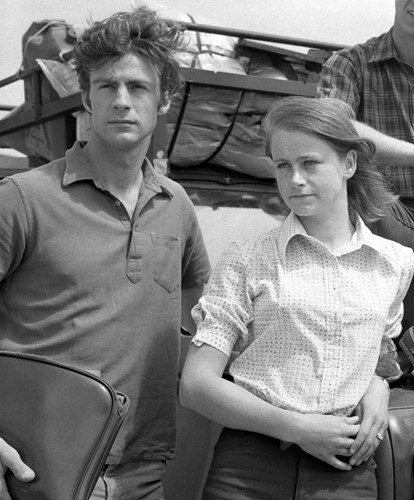The trial of Anne Boleyn, The Battle of Agincourt, Lady Godiva, Finsbury Square and actor Ralph Fiennes all have direct family links to Sir Ranulph Twisleton-Wykeham-Fiennes, Bt., D.S.O., O.B.E. (aka “Ran”). He is an extraordinary character and a good friend. We meet in Dubai at the much-acclaimed Emirates Airline Festival of Literature where he is promoting his 25th book—his autobiography Mad, Bad and Dangerous To Know. That was how the father of his childhood sweetheart and first wife, Ginny, described him. Is he?
He admits to “Bad” from having misbehaved and spent time in various prisons, “but the Mad and Dangerous to Know … well, they’re up for debate,” he says. People think he must be crazy, and he is a serial risk-taker, but careful calculation and thorough preparation are hallmarks of all his 30 completed expeditions. His achievements include climbing the world’s highest mountains and raising $25 million for various charities.
The first time I met Ran was at The Royal Naval College at Greenwich, on the eve of the Transglobe Expedition’s triumphant return in the presence of the expedition’s patron, HRH Prince Charles. At the end of the Transglobe Expedition across both poles along the Greenwich Meridian, and after 90 days stuck on that ice floe fending off hungry polar bears, Ran and his teammate, Charlie Burton, arrived back in the UK on the Benjamin Bowring icebreaker and promptly slipped ashore to a pub on the shores of the River Thames for a quiet, well-earned pint. That was nearly 40 years ago and still the Transglobe volunteer team of 52 people reunites regularly to swap news and relive their expedition exploits, such is the strength of the team culture fostered under Ran’s leadership.
Each year he gets through a punishing schedule of lectures at the behest of Fortune 500 companies the world over eager for an edge in leadership and guidance on achieving peak performance. Sir Ran has distilled five principles of leadership from a lifetime of pushing himself and others to insanely abnormal limits. For example, in 2003 not long after collapsing from a heart attack at 59, he and co-expeditioner Dr. Mike Stroud raised a significant sum for The British Heart Foundation by running seven marathons on seven continents in seven days.
Sir Ran’s first leadership principle: “You always need to appear democratic even if you’re a real tyrant.” Leading a team across a crevasse field on Everest is a series of life or death choices that he has faced many times. With all his experience including falling into one or two, Ran knows the way across to safety. But he takes time to consult his team so that they all agree on his way and the team moves forward in complete unison. It’s a ploy he uses all the time to get people to do what he wants. I know from having worked with him for eight years at Occidental Petroleum, Ran’s only corporate job.
“Select the people you work with extremely carefully if you want to achieve your goal safely” is the second principle. All 8,000 candidates wanting to join The Transglobe Expedition team had to pass the grueling selection process for the UK’s military elite, The Special Air Service. The test has a 90 percent fail rate among the people who believe they are mentally and physically fit enough to apply. That was just for starters. Those who made it through were then subjected to various expeditions to test their mettle in the frozen wastes of Greenland and Arctic ice at minus 40°C.

